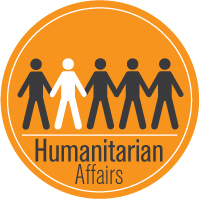|
The Humanitarian Affairs Unit constitutes a major department at FWC and it directly responds to the needs of vulnerable populations, with emphasis on asylum seekers and refugees. The Unit offers direct services to these populations, and also advocates and raises awareness on related issues among stakeholders and the general public. The main projects implemented by the Unit are the UNHCR funded project which provides legal aid and social support to asylum seekers and refugees under the project name Strengthening Asylum; the Unit for the Rehabilitation of Victims of Torture (URVT) operating the UNVFVT project, which offers services and rehabilitation to victims of torture, who are asylum seekers and refugees and the project Improvement of the Situation of Asylum Seekers in Cyprus, funded by the embassy of the Federal Republic of Germany.
For more information on the work we do with vulnerable groups see our Constitutional and Value Policy: Special Focus on Vulnerable Groups.
Ongoing Projects
Strengthening Asylum has been implemented by the Future Worlds Center since May 2006. It is funded by the UNHCR Representation in Cyprus. This project’s main objective is to ensure that beneficiaries have access to a fair and efficient asylum procedure, while they can enjoy the rights they are entitled to according to national, European, and International law. To this end, Strengthening Asylum assists asylum seekers through the asylum procedure, as well as refugees in Cyprus under international protection, with free legal and social aid.
The Unit for the Rehabilitation of Victims of Torture (URVT) is a project that aims to support and promote the empowerment and rehabilitation of torture victims and victims of trafficking who are asylum seekers or persons granted with international protection status in Cyprus and to assist them to integrate into the local society. It takes a holistic approach, offering legal advice and social assistance directly to the persons of concern and their families, as well as referring them for medical and psychological care. Its services are facilitated through a structure designed on the standards of the Istanbul Protocol - United Nations Manual on the Effective Investigation and Documentation of Torture and Other Cruel, Inhuman or Degrading Treatment or Punishment - and its services are offered to the beneficiaries by specialised, experienced and well-trained personnel. In addition, URVT functions in association to a network of volunteer service providers, medical professionals, and interpreters. URVT operates under the Humanitarian Affairs Unit of the Future Worlds Center. One of the most important beliefs of the Future Worlds Center is that by befriending and understanding people of different cultures, backgrounds, and experiences, the future world becomes a better place. For information click here
Provision of Free Legal Assistance to Asylum Seekers is a project funded by the European Refugee Fund and the Republic of Cyprus. This project will compliment the additional projects run by Future Worlds Center's Humanitarian Affairs Unit. Its mission is to provide asylum seekers with free, confidential, independent legal advice and representation, throughout the asylum procedure, and ensure access to a fair and effective examination of their case.
"Improvement of the Situation of Asylum Seekers in Cyprus" is a project funded by the Federal Republic of Germany. The project aims to take a holistic approach by working both at the individual and the societal levels. By offering legal services, we will respond to the needs of the target population, who are one of the most marginalised groups in the country and by launching public advocacy and awareness-raising activities we will affect xenophobic public attitudes, discriminatory state policies and practices in an effort to make Cyprus a more inclusive and accepting host society. This projects works complimentary to the other projects of the Humanitarian Affairs Unit.
The AIDA project is jointly coordinated by the European Council on Refugees and Exiles (ECRE), Forum Réfugiés-Cosi, Irish Refugee Council and the Hungarian Helsinki Committee. It aims to provide up-to date information on asylum practice in 16 EU Member States (AT, BE, BG, CY, CR, DE, FR, GR, HU, IE, IT, MT, NL, PL, SE, UK) which is easily accessible to the media, researchers, advocates, legal practitioners and the general public through the dedicated website www.asylumineurope.org. Furthermore the project seeks to promote the implementation and transposition of EU asylum legislation reflecting the highest possible standards of protection in line with international refugee and human rights law and based on best practice. The Humanitarian Unit contributes to the database by writing an annual detailed report on Cyprus' asylum practice and conditions. The latest updated report (February 2015) can be found here: http://www.asylumineurope.org/reports/country/cyprus
